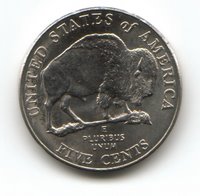 The Understanding Science website was a big launch at the SICB meeting in January. In each of our little conference bags was a poster put out showing the "How science works" flowchart that is sort of at the core of the website.
The Understanding Science website was a big launch at the SICB meeting in January. In each of our little conference bags was a poster put out showing the "How science works" flowchart that is sort of at the core of the website.One of my colleagues looked at it, and said, "There's no place where it says, 'Beg for money.'" You might think this to be a joke, but this person was deadly serious. A little upset, maybe. "If that's what they want us to tell people about science..."
So I've been thinking a lot about how science is funded. And it's hard not to come to the conclusion that it's seriously messed up.
Costs are going up faster than inflation. Faculty are expecting a lot to get their research going, because if they don't do it right, they're screwed afterwards. New faculty at MIT get (all together in that Dr. Evil voice of Mike Meyers) one million dollars.
Zuber, head of MIT's department of earth, atmospheric, and planetary sciences, says a new junior faculty member receives a $1 million start-up package from the university for buying equipment, renovating existing space, and doing whatever else it takes to launch an experimental program. After that, the fledgling scientist generally must fly solo.
Not sure about other sciences, but in biology, if you are doing medical research, there are various charitable organizations that might fund your work, plus the National Institutes of Health. If you're not doing medical research, almost the only source of money to fund science is the U.S. federal government. Competition is very, very, tight for every single federal dollar.
And one of the perverse things, as a letter in Science noted last year, is that there is no reward for being frugal or efficient. If two researchers run their labs, and both get our 3 papers in a year, but one gets those out with a million dollar grant and the other a ten thousand dollar grant, the former is probably going to get better reviews because that person "brought in more money to the institution."
I've though for a long time that a lot of researchers would end up pricing themselves out of the market. But the market can reward people who do expensive science, not productive science.
Messed up.
There are several links to talks and article about funding are found at the TED blog. See also how scientific funding shouldn't be part of "stimulus packages" here.

No comments:
Post a Comment